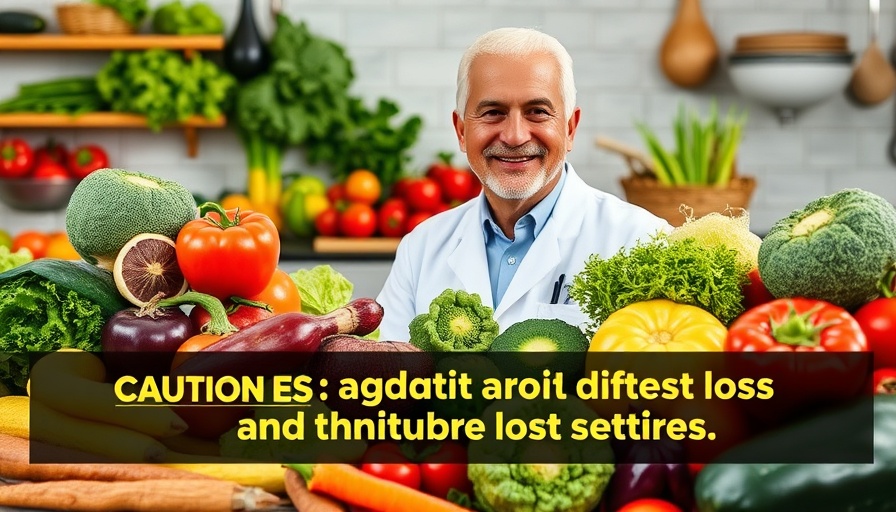
Unlock the Nutritional Secrets: Why Cooking Vegetables Can Backfire
In the world of nutrition, cooking vegetables often comes with a simple rule: not all methods are created equal. In a recent investigation, Dr. Michael Greger unveiled a startling truth about bell peppers, a staple in our kitchens.
In 'The 1 Vegetable You Should Never Cook!', the discussion dives into the importance of cooking methods in retaining nutrients, sparking deeper analysis on our end.
Why Bell Peppers Should Stay Raw
According to Dr. Greger, bell peppers lose a staggering 70% of their antioxidant value when cooked. This means that if you're looking to reap the benefits of their abundant vitamins, it’s best to enjoy them fresh. Eating them raw not only preserves their nutrients but also enhances your overall health. Incorporating raw bell peppers into your salads, wraps, and dips can prove a deliciously healthy addition to your family's plant-based diet!
The Cooking Conundrum: Not All Veggies Lose Their Punch
In our quest for healthy living, it’s essential to recognize that cooking can enhance the nutritional profile of some vegetables. Take carrots, for instance. Cooking boosts their beta-carotene levels, which our body transforms into vitamin A—crucial for vision and immune health. This means that while bell peppers are best enjoyed raw, other vegetables like carrots thrive with a little culinary attention. Understanding these differences can help families make informed decisions about their meals.
Water-Soluble Vitamins: The Great Escape
The cooking method chosen can also impact the nutrients retained in your favorite veggies. Water-soluble vitamins, especially in foods like broccoli and spinach, are easily lost when boiled. Instead, consider quick steaming or microwaving to keep more of those vital nutrients intact. A family-friendly tip: incorporate these veggies into stir-fries at the last moment for a burst of color and nutrition!
Culinary Transformations: A Case for Cooking
Interestingly, some vegetables do get healthier with cooking! For example, tomatoes pack a powerful antioxidant punch—lycopene levels increase by 35% when cooked. This nutrient supports heart health and may lower cancer risks. By breaking down the cell walls of tomatoes through cooking, you’re making these antioxidants more bioavailable for your body. This balance of cooking techniques is key for a healthy body.
Embrace the Diversity of Vegetable Preparation
As you navigate the world of vegetables versus cooking, one of the most significant benefits is the opportunity to experiment. Mix raw bell peppers into meals while steaming kale or simmering carrots in a delightfully flavored broth. The goal is to enjoy a variety of tastes and textures while maximizing nutritional value. Encouraging kids to help in meal preparation can foster a love for healthy eating and expand their palate—an experience that enriches family time!
Final Thoughts: Cultivating Healthy Eating Habits
The insights from Dr. Greger about bell peppers and cooking methods open the door to a wealth of knowledge for families aiming to embrace a healthier lifestyle. By thoughtfully selecting how to prepare vegetables, you can significantly enhance their nutritional benefits for your family. Embracing a flexible approach to cooking will empower you to create vibrant, health-packed meals that promote a happy, healthy family.
If you’re committed to fostering a healthy body for your family, start exploring different ways to prepare vegetables. Learn how to keep nutrients intact while creating delicious meals that everyone will love!
 Add Row
Add Row  Add
Add 




 Add Row
Add Row  Add
Add 

Write A Comment